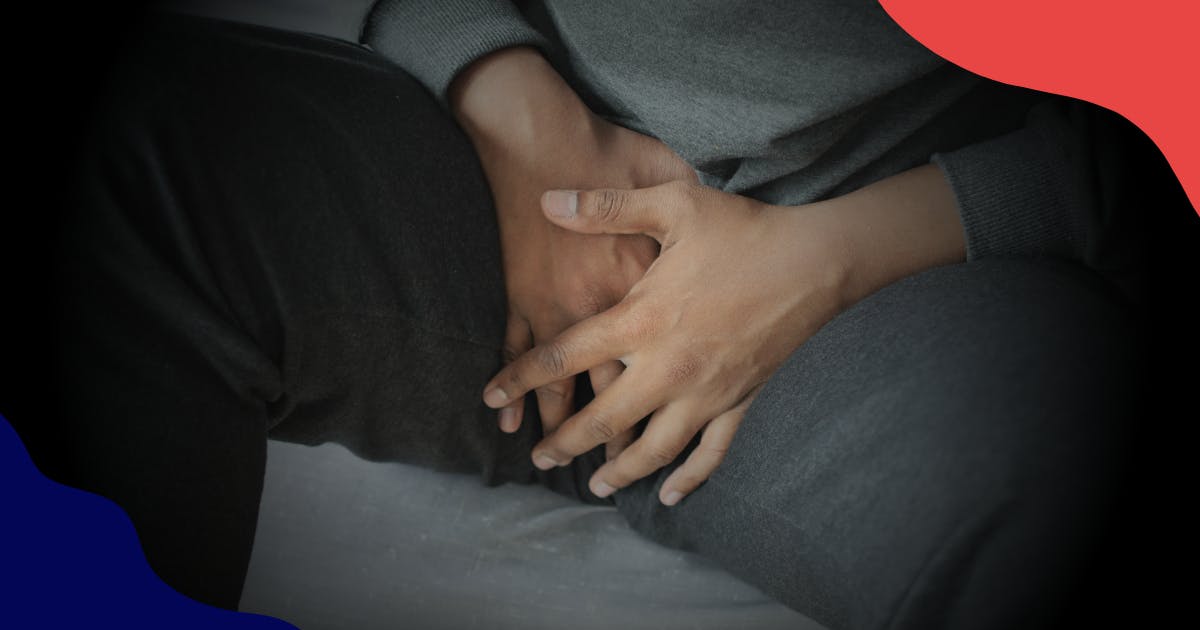Testicular cancer is commonly diagnosed among men aged 15 to 35. And yet, awareness of this condition remains low, especially regarding its impacts on male sexual health. This article delves deeply into how testicular cancer can cause sexual dysfunction and what men can do to manage both conditions.
An Overview of the Testes
Your testes, also called testicles, are responsible for generating your sperm and male sex hormones. Each man has two testes, which are in a skin sac called the scrotum below the penis. Your testicles may vary in size or be positioned lower than the other. However, if you notice changes in the size of one or both of your testes, you should see a doctor as soon as possible, as this could be a sign of testicular cancer.
What is Testicular Cancer?
Testicular cancer occurs when cells mutate and grow abnormally quickly. These cells clump together, forming a mass called a “tumour.” Since these cells no longer behave as they should, the tumour can become “malignant,” meaning they harm other cells and tissues. Fortunately, testicular cancer has a good prognosis, with over 90% of cases resulting in successful treatment. This rate increases with early diagnosis and intervention.
You might wonder how to know if you have testicular cancer. While testicular cancer does have symptoms, they are often shared with other testicular disorders. Being examined by a doctor is necessary to rule out cancer. Here are some symptoms that could indicate testicular cancer:
- Lumps or swelling
- A build-up of fluid in the scrotum
- Pain in the groin or abdomen
- Pain in the testes or scrotum
- Testicular atrophy (shrinking testicle)
- Gynaecomastia (enlargement of breast tissue in males)
- Sudden back pain
Testicular Cancer and Sexual Dysfunction
Given that the function of your testicles is to create sperm cells and secrete male sex hormones, it’s no surprise that testicular cancer can disrupt your sexual function. Here are some ways in which testicular cancer may negatively affect your sexual life:
Erectile Dysfunction
Since the testicles are responsible for producing testosterone, any damage to the testes, whether caused by the testicular cancer itself or the treatment methods, may lead to hormonal imbalances that can result in erectile issues. Erectile dysfunction is one of the side effects of chemotherapy and radiation therapy in men. It can also result from the removal of the testicles, though men may be able to maintain their erectile capacity if only one testicle is removed.
Anejaculation
Anejaculation occurs when a man fails to ejaculate or release semen despite reaching orgasm. While testicular cancer itself usually does not inhibit a man’s ejaculation, the removal of lymph nodes can. Retroperitoneal lymph node dissection is one of the treatments for testicular cancer. During this procedure, your medical provider creates an incision and removes cancer-affected lymph nodes in the back of your abdomen. Nerve damage caused by radiation can also lead to anejaculation.
Hypogonadism
Hypogonadism, also called testosterone deficiency, occurs when men experience health issues due to low testosterone levels in the body. Testosterone is needed not only for sexual function but also for other purposes, such as muscle growth and red blood cell production. Men may still produce enough testosterone with just one testicle. However, if they are already predisposed to hypogonadism, they may experience a more significant drop in testosterone levels.
Male Infertility
As with testosterone, one testicle can still be enough to get your partner pregnant as it continues to produce sperm. However, your chances of successful conception may decrease due to reduced sperm production overall. If both of your testicles must be removed, you may choose to freeze your sperm, store it in a bank, and explore medically assisted reproduction. While chemotherapy and radiation therapy may be alternative treatments, they may also permanently damage your ability to produce sperm.
Low Libido
Testosterone is critical for maintaining sexual desire and supporting optimal mental health. Research shows that men with testicular cancer may experience low libido. Pain from cancer or its treatments can also dull your sexual desire and cause anxiety or depression, which are linked to various sexual dysfunctions. Men with low testosterone frequently suffer from low energy or fatigue, both of which can inhibit libido.
Testicular Cancer Treatments
Doctors would often prioritise treating testicular cancer first to prevent possible lifelong consequences resulting from any delays in treatment. The usual treatment options for testicular cancer include:
- Radiation Therapy – your medical team will attempt to kill the cancer using high-dose X-rays. This option is often given when testicular cancer has spread to the nearby lymph nodes. While radiation therapy is limited to the area it’s directed at, it can still kill healthy cells and tissues.
- Chemotherapy – you will take drugs that kill cancer cells, either in the form of a pill or through injection. As the medication works by attacking any cell that divides rapidly, it may also affect your bone marrow, hair, and intestines as a side effect. Chemotherapy is often prescribed for aggressive testicular cancer or when it has spread outside the testicles.
- Surgery – doctors will remove the affected testicle or lymph nodes to prevent cancer cells from invading the rest of your body. Doctors may still use chemotherapy and radiation therapy after this to increase the likelihood that there aren’t any remaining cancer cells. Surgery may also be performed on other organs if the cancer has already metastasized.
Once the cancer has been treated, you may see improvements in your sexual capacity. But if you’re still experiencing sexual issues, raise it with your doctor and seek help from clinics that specialise in managing sexual dysfunctions.
Can Testicular Cancer Be Prevented?
Testicular cancer isn’t preventable because there aren’t any clear causes of cancer. Most risk factors, such as age, race, family history, and genetic diseases, are beyond your control. What you can do instead is live a healthy lifestyle and avoid anything that research has shown to be carcinogenic, such as ultra-processed foods, cigarettes, and alcohol. You may also perform testicular self-exams regularly, checking for lumps and any anomalies in your testes. Attending your annual physical examination and cancer screening also helps.
Conclusion
Testicular cancer may lead to sexual dysfunction due to damage from the cancer cells or as a side effect of cancer treatment. Once your doctor has confirmed that you are in complete remission (cancer-free), your sexual dysfunction may gradually improve.
If you’re struggling with erectile dysfunction and low testosterone, please book an appointment with us. Our experts will work with you to find the best approach to rehabilitating your sexual health.





